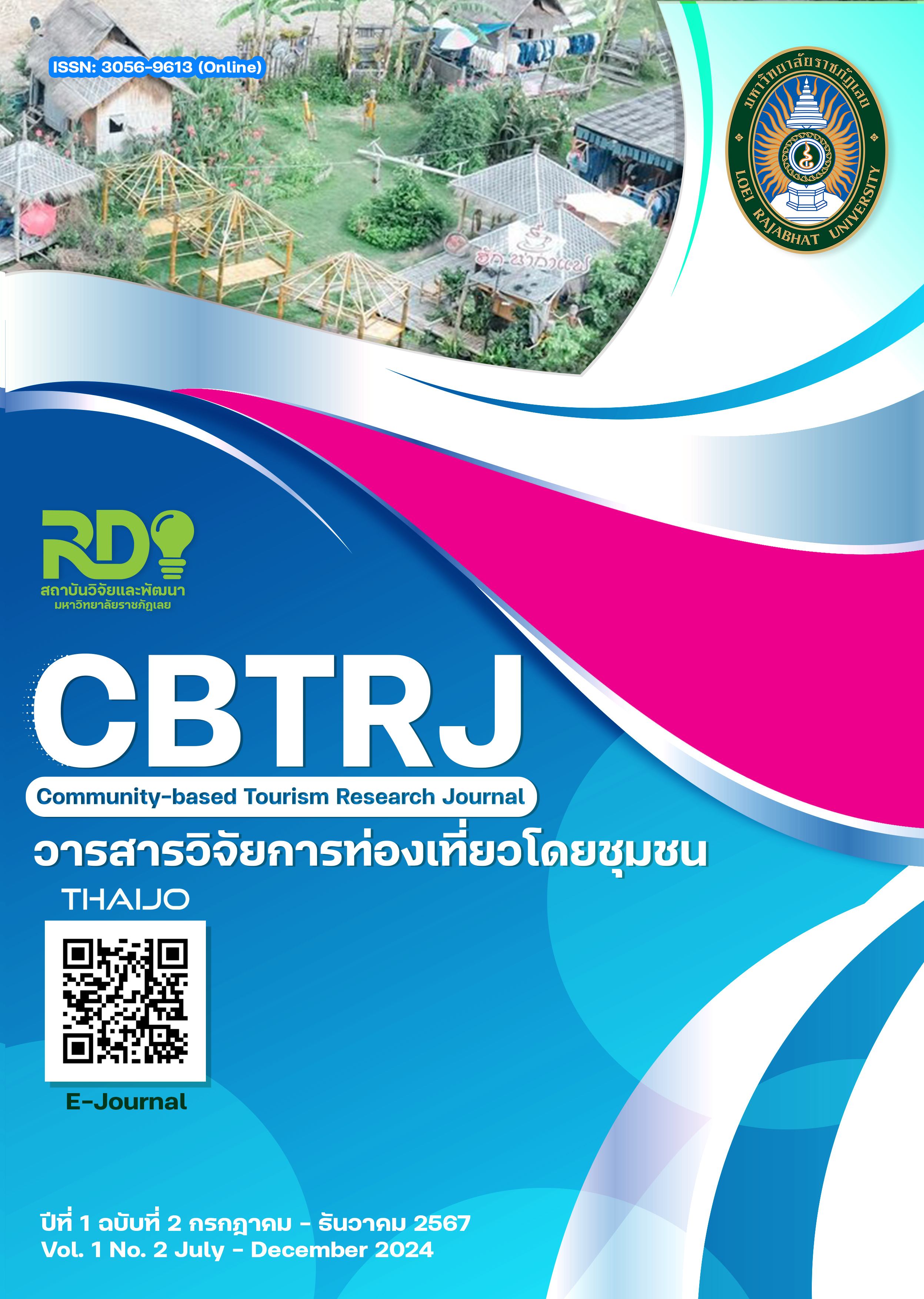The Cultural Tourism Management with Herbal Knowledge of Ethnic Group, Suphanburi Province
Keywords:
Cultural Tourism, Agricultural herbal medicine science, Ethnic groupAbstract
The objectives of the research on tourism management, agricultural Culture and herbal medicine of ethnic groups in Suphanburi Province are as follow 1) to research and develop agricultural tourism management models for ethnic groups 2) to study the wisdom of ethnic groups regarding agricultural culture from wisdom, especially herbal medicine or local plants 3) to study the agricultural tourism patterns of ethnic groups in Suphanburi Province. This research is qualitative research through 12 of non-participant observation, interviews and focus group from community representatives, government representatives, people and officials. The results found that the community’s occupation is agriculture and they have the wisdoms of Lao Krang with Lao Krang method. They grow vegetables and local herbs for consumption and treat disease, they also have traditions and rituals related to rice. It can be used for tourism and promoting agricultural tourism among ethnic groups. The tourism should combine with health and agricultural tourism.
References
Chuenka, R. & Supun, J. (2020). Traditional knowledge in Chai Nat province for sustainable tourism promotion and value creation of local products. Inthaninthaksin Journal,15(1), 137-167. https://so02.tci-thaijo.org/index.php/HUSOTSU/
article/view/243157/164902
Department of Tourism. (2014). Manual for evaluating quality standards of agricultural tourism destinations. Bangkok: Office of printing affairs of the War Veterans organization under royal patronage. (In Thai)
Greenwell, T.C., Danzey-Bussell, L.A., & Shonk, D.J. (2014). Managing sport events. IL: Human Kinetics.
Isichaikul, R. (2014). Specialized tourism management. Nontaburi: Printing house Sukhothai Thammathirat Open University.
Khambun, A. & Kovathanakul, D. (2013). The small town tourism assessment, Khemmaraj district, Ubonratchathani province. Journal of Thai hospitality and tourism, 8(2). https://so04.tci-thaijo.org/index.php/tourismtaat/article/view/15417/14110
Sawangsuk, N. (2021). A development of recreation activities management model for community-based tourism in Thonburi district Bangkok. Panyapiwat journal,13(2). https://so05.tci-thaijo.org/index.php/pimjournal/article/view/241278/171782
Sri-On, C. (2022). Ministry of agriculture and cooperatives’s meeting for agricultural tourism cooperation between government and private sectors. (In Thai) https://www.moac.go.th/news-preview-441891792068.
Suksomkasem, R. (2016). The Study of Factors Contributing to the Community Strenght: case study of Pakkret Municipality Nonthaburi. [Master’s thesis, Thammasat University].
TU Digital Collections. https://ethesisarchive.library.tu.ac.th/thesis/2016/TU_2016_
_5455_4967.pdf
Tooman, L. A. (1997). Tourism and Development. Journal of Travel Research, 35(3), 33-40. https://doi.org/10.1177/004728759703500305
Tourism Authority of Thailand. (2008). About Thailand. (In Thai) http://www.tourismthailand.org/about-thailand/.
Watcharaphon, W. (1991). A study of word ending in Lao Krang language. Bangkok: Mahidol University.






